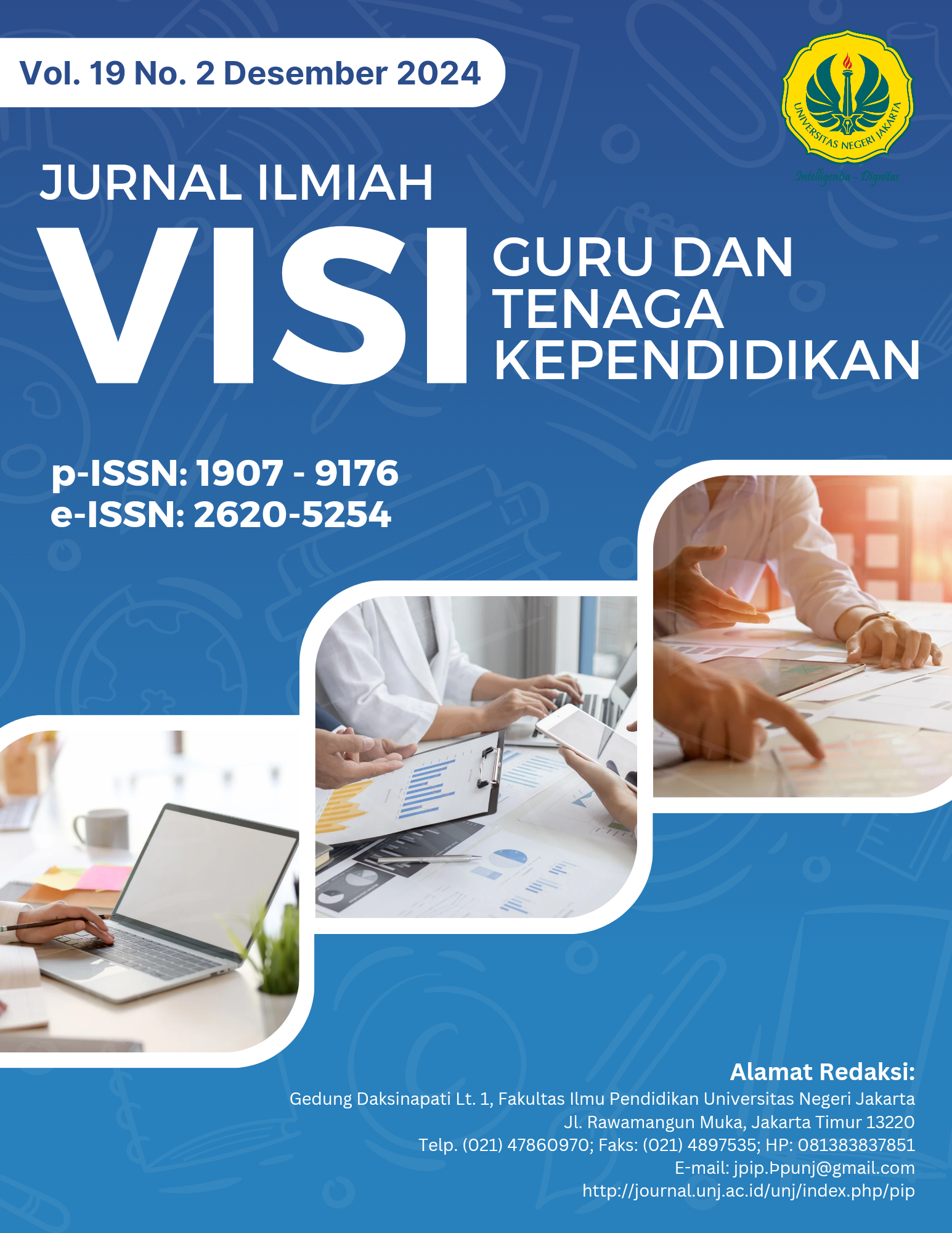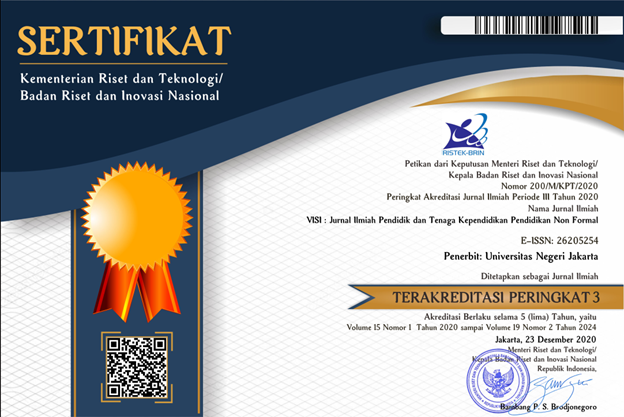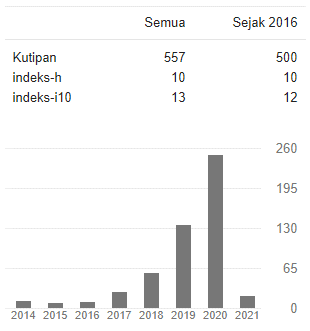Optimizing Community Learning Opportunities Through Training Programs in Non-Formal Educational Institutions
DOI:
https://doi.org/10.21009/JIV.1902.1Keywords:
Optimization, Learning Opportunities, Community EmpowermentAbstract
Optimal learning opportunities are key to developing the potential and quality of human resources in society. However, the gap in equitable distribution of learning opportunities is still a challenge that must be overcome. This research aims to describe the optimization of training programs in non-formal education institutions as a solution in providing learning opportunities for the community. Using a qualitative approach and literature study, this research explores strategies and measures that can be implemented to improve the effectiveness of training programs in non-formal education institutions. The results show that optimizing learning opportunities through training programs in non-formal education institutions can be achieved by identifying community needs, increasing program flexibility, involving local communities, providing mentors and mentoring, providing certification, building partnerships with industry, utilizing technology, conducting periodic evaluations, providing financial assistance, and conducting effective promotion. The implementation of these measures can provide significant benefits to communities, such as increased skills and knowledge, economic empowerment, poverty alleviation, increased community participation, improved public health, women's empowerment, improved literacy and education, increased inclusiveness, fostering local innovation and development, and improved overall quality of life. This research contributes to a deeper understanding of the role of non-formal education institutions in providing optimal learning opportunities for communities and the strategies that can be implemented to optimize the positive impact of such training programs.
Downloads
Published
How to Cite
Issue
Section
License
Copyright (c) 2024 Yolanda Lusiana Pratama, Yanti Shantini, Nike Kamarubian

This work is licensed under a Creative Commons Attribution-NonCommercial-ShareAlike 4.0 International License.
Authors who publish with this Journal agree to the following terms:
- Author retain copyright and grant the journal right of first publication with the work simultaneously licensed under a creative commons attribution licensethat allow others to share the work within an acknowledgement of the work’s authorship and initial publication of this journal.
- Authors are able to enter into separate, additional contractual arrangementfor the non-exclusive distribution of the journal’s published version of the work (e.g. acknowledgement of its initial publication in this journal).
- Authors are permitted and encouraged to post their work online(e.g. in institutional repositories or on their websites) prior to and during the submission process, as it can lead to productive exchanges, as well as earlier and greater citation of published works.
- Users/public use of this website will be licensed to CC BY-NC-SA Creative Commons Attribution-NonCommercial-ShareAlike 4.0 International License









